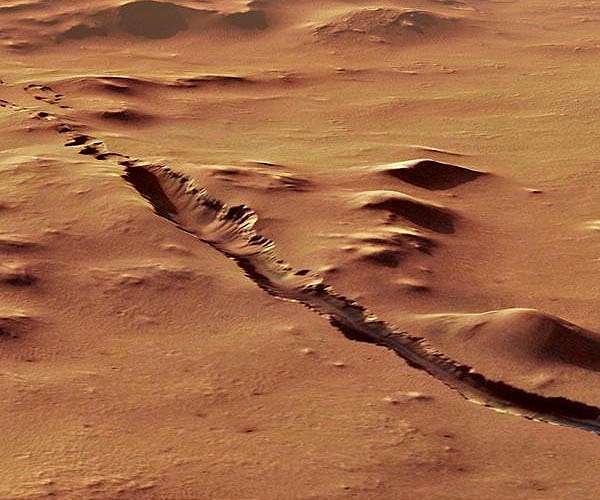21.02.2024

In a groundbreaking study led by Professor Joseph Michalski of The University of Hong Kong (HKU), new light has been shed on the volcanic landscape of Mars, revealing a complexity and diversity previously unrecognized. This research, recently published in Nature Astronomy, delves into the mechanisms behind Martian volcanism and its implications for understanding the geological history of Earth and Mars.
Mars, known for its striking red surface and absence of plate tectonics, has long intrigued scientists with its volcanic features. While the Red Planet's shield volcanoes have been well-documented, akin to those found in Hawaii, Professor Michalski's study uncovers a wider array of volcanic formations, including lava domes, stratovolcanoes, calderas, and large ash shields. These findings challenge the prevailing notion that Mars's volcanic activity was uniformly basaltic and simple.
The diverse volcanoes discovered suggest a complex magmatic process involving the evolution of magma with a high silica content, indicative of an advanced stage of crustal recycling. This process, referred to as vertical tectonics, contrasts with the horizontal movement-driven plate tectonics observed on Earth. The intense volcanism on ancient Mars is thought to have led to the collapse of the crust into the mantle, where it re-melted and formed these silica-rich magmas.
Professor Michalski's insights into Martian volcanism offer a unique perspective on early geological processes, potentially mirroring conditions on ancient Earth before the advent of plate tectonics. The study of these Martian volcanoes, therefore, not only expands our knowledge of Mars's geological history but also provides a valuable analog for understanding the early crustal recycling processes on Earth.
The significance of this discovery extends beyond the realms of planetary science. As Professor Guochun Zhao, Chair Professor of HKU Earth Sciences, points out, understanding the mechanisms of crustal recycling in pre-plate tectonic regimes offers crucial insights into the formation of felsic continents on Earth. This research addresses long-standing debates among earth scientists regarding the origins and evolution of Earth's continents.
The study by Professor Michalski and his team opens new avenues for exploring the geological dynamics of both Mars and Earth. By revealing the diverse and complex nature of Martian volcanism, this research not only enriches our understanding of the Red Planet but also sheds light on the ancient processes that shaped the Earth's crust, offering a glimpse into the planet's formative years.
Quelle: SD
